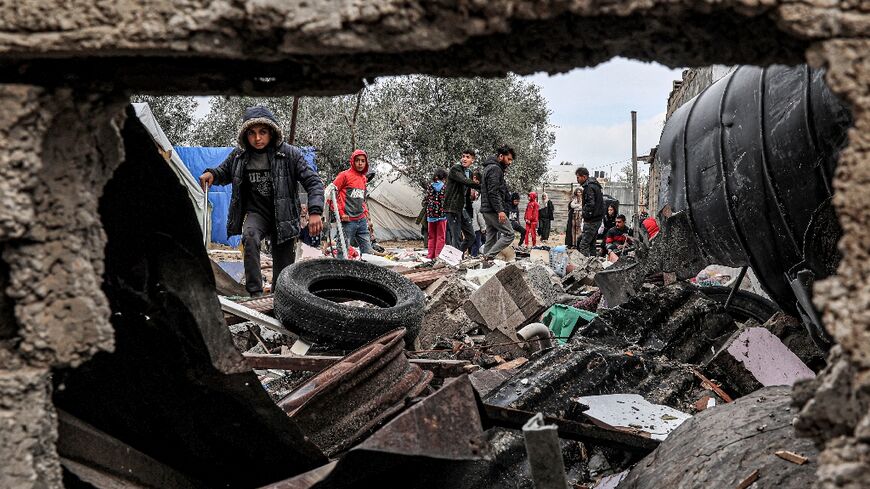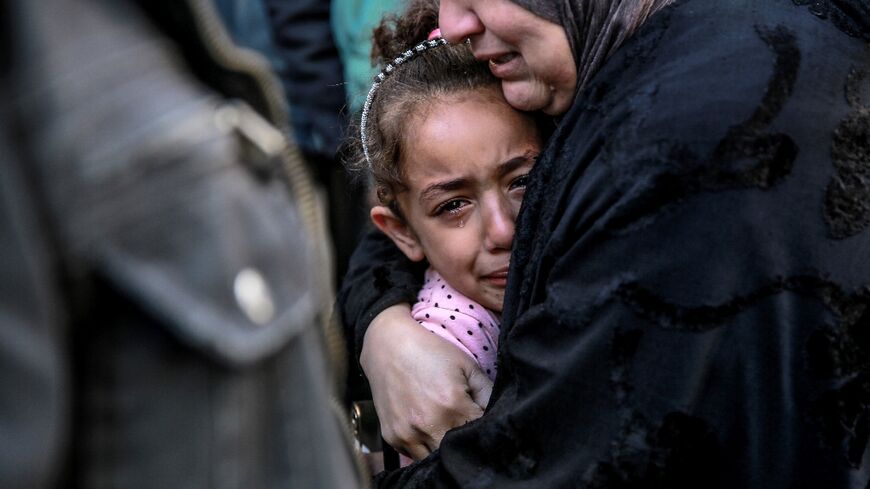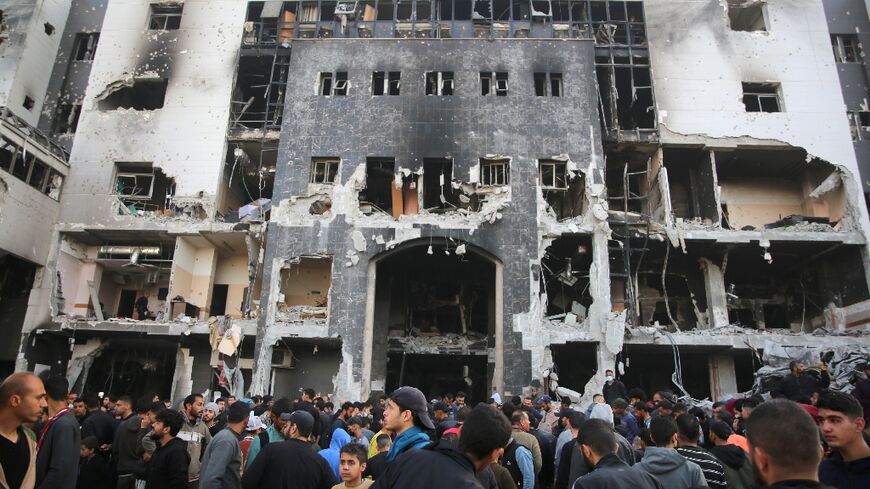'Destroyed': Gaza family erects shelter on home's ruins

The makeshift shelter sits atop the ruins of the Kahlout family's shattered Gaza home, which took them 30 years to build but was destroyed in moments by war.
They were shocked to return to rubble after fleeing fighting around their house in the Jabalia refugee camp in northern Gaza, yet they had to decide what to do next.
"We pitched a tent over the rubble and we are staying here. Where to go? There's no where to go, there's no shelter," said 60-year-old Oum Nael al-Kahlout.
"It's our memories, our house which we worked hard to build and we spent 30 years building it," she added.
Over five months into the war sparked by Hamas's unprecedented attack on Israel, the heavy bombardment has flattened swathes of the densely populated Palestinian territory.
At the Kahlout's shelter, concrete blocks serve as stairs and a garland of red pennants hang limply from the roof of sheet metal. There are no windows and the walls are about waist-high.
The structure -- which houses a couch, some cooking utensils and a bed -- is surrounded by a desolate landscape of shattered concrete that used to be buildings.
- 'We eat nothing' -
The bloodiest ever Gaza war broke out after Hamas's attack resulted in about 1,160 deaths in Israel, mostly civilians, according to an AFP tally of Israeli official figures.
Militants also seized about 250 hostages, of whom Israel believes 130 remain in the Gaza Strip, including 33 who are presumed dead.
Israel has responded with a relentless offensive against Hamas that Gaza's health ministry says has killed at least 31,819 people, most of them women and children.
The UN agency for Palestinian refugees said the destruction in Gaza has created 23 millions tonnes of debris in the narrow coastal territory.
"It will take years to clear the rubble & unexploded ordnance," UNRWA wrote on social media on Friday.
Yet for people like Kahlout, who shares the shelter with her husband Saed Ismail al-Kahlout, food is the most pressing need.
Half of Gazans are experiencing "catastrophic" hunger, with famine projected to hit Gaza's north by May unless there is urgent intervention, a UN-backed food assessment warned Monday.
The situation is particularly dire in the north, where the United Nations says there are about 300,000 people and where famine was "imminent... projected to occur anytime between mid-March and May".
"We don't receive any aid. We eat ground weeds, when we find mallow weed. We cook it in water and drink it as soup," said Oum Nael, referring to an edible herb.
Her husband added that seeking help from charities had made little difference: "Hopefully we receive a plate of mallow weed or something. It's always mallow weed, we eat nothing."




